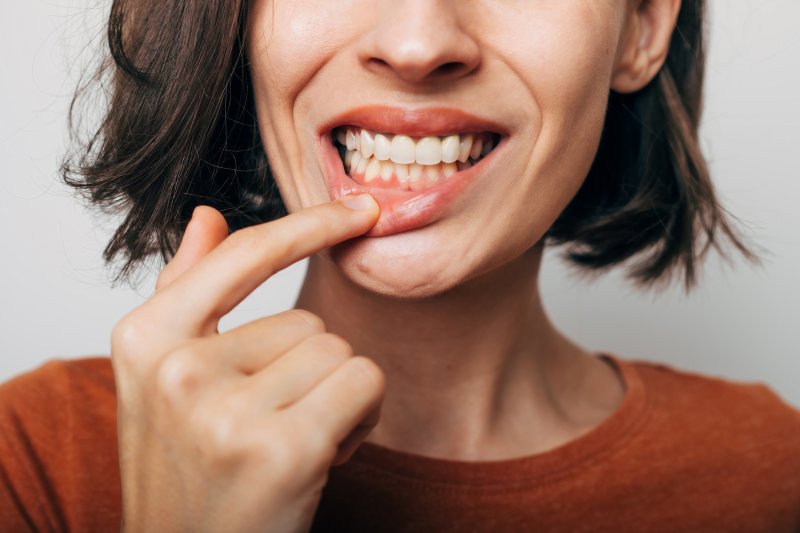
Gum disease is an insidious threat to your oral health that starts small before becoming much worse. Its first stage is inflammation of the gums called gingivitis. While the symptoms of gingivitis can be so mild at first that you don’t even notice them, if left untreated it will advance to the much more destructive phase called periodontitis. Because gum disease is a serious problem that must be treated promptly, here are a few signs that you might need to see your dentist to be treated for gingivitis.
What Causes Gingivitis?
Gingivitis is inflammation of the gingiva, which is the part of the gum around the base of a tooth. The most common cause of gingivitis is poor oral hygiene that leads to plaque buildup. These plaque formations contain multitudes of harmful bacteria that excrete acid which can irritate the gums, causing them to become inflamed and vulnerable to further infection.
What Are Some Signs of Gingivitis?
Gingivitis might be hard to notice in its early stages if you don’t know what to look for. Here are a few signs that trouble might be brewing in your gingiva:
- Puffy or swollen gums
- Angry or dusky red gums
- Foul breath
- Receding gumline
- Tenderness in the gums
- Gums bleeding easily as a result of brushing or flossing
What Happens if Gingivitis Goes Untreated?
While gingivitis can go unnoticed, the more advanced stage of gum disease called periodontitis is not so discreet. This stage can cause the gums to recede to the point where the roots of the teeth become mostly exposed and may result in deterioration of the jawbone. Tooth loss is common at this stage. Worse yet, the bacteria causing the infection can spread through the respiratory or circulatory systems to other tissues where they can cause dangerous secondary infections such as sepsis or pneumonia.
The good news is that gingivitis can almost always be reversed or completely prevented by proper oral hygiene. An excellent daily dental care routine includes brushing at least twice along with flossing and rinsing with antibacterial mouthwash. If you find that your gums are overly sensitive when you brush or floss, you can use desensitizing toothpaste to numb the area while you do so. Equally important is keeping up with regular dental appointments to check for signs and treat cases of gum disease. Your dentist is your gums’ best friend, so it is crucial that they see a lot of each other.
About the Practice
Baltimore Dental Arts is equipped to address and resolve simple and complex dental issues in Baltimore, MD. Led by Drs. Charlie Ward, Devon Conklin, Melody Ward, and Kevin Murphy, the staff has years of experience to draw upon while helping patients achieve their ideal smiles. Services include general, restorative, cosmetic, and emergency dentistry in addition to periodontal treatments. For more information on early gingivitis detection, contact the office online or dial (410) 372-0202.
